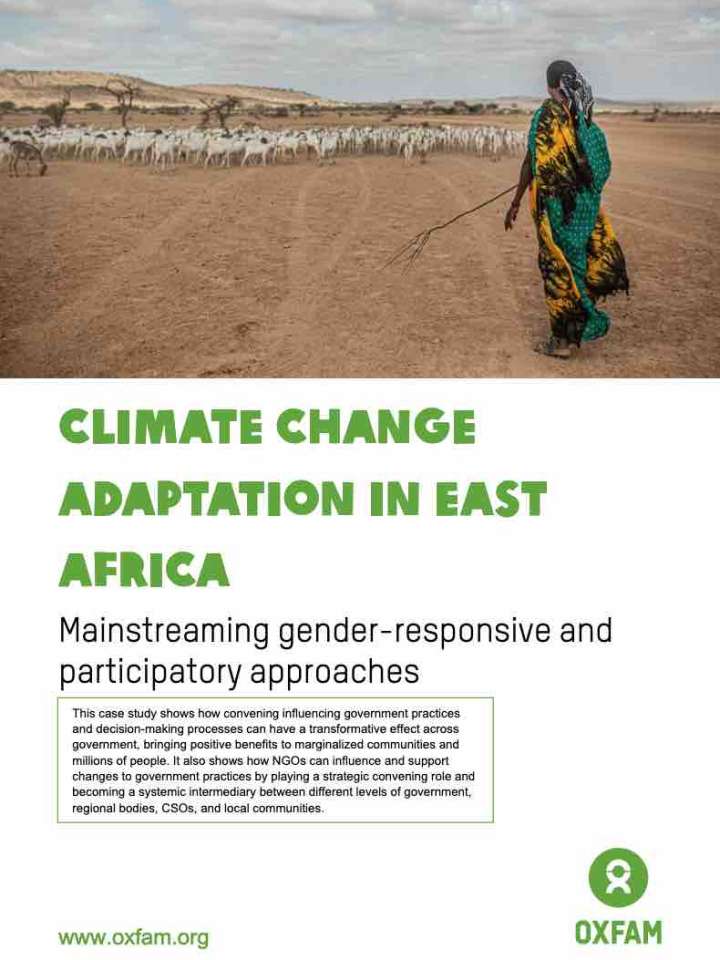Climate change adaptation in East Africa: Mainstreaming gender-responsive and participatory approaches
This case study shows how convening influencing government practices and decision-making processes can have a transformative effect across government, bringing positive benefits to marginalized communities and millions of people. Ethiopia, Uganda and Mozambique are low-income countries that are highly vulnerable to the impacts of climate change. The Africa Climate Change Resilience Alliance programme (ACCRA), a unique consortium of national and international partners that was established in 2009, sought to improve the adaptive capacity of people most vulnerable to climate change in these countries through people-centred and gender-sensitive governance and planning processes.
The focus and approach of ACCRA’s work on strengthening local adaptive capacity varied across the three countries. The effects and impacts of the ACCRA initiative have continued to ripple on following the end of the project in 2016.
Explore further
